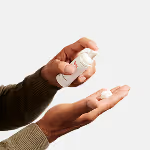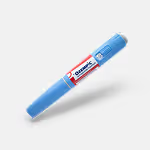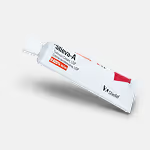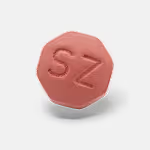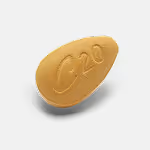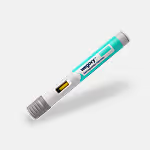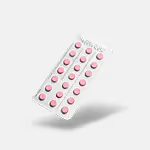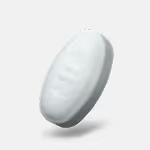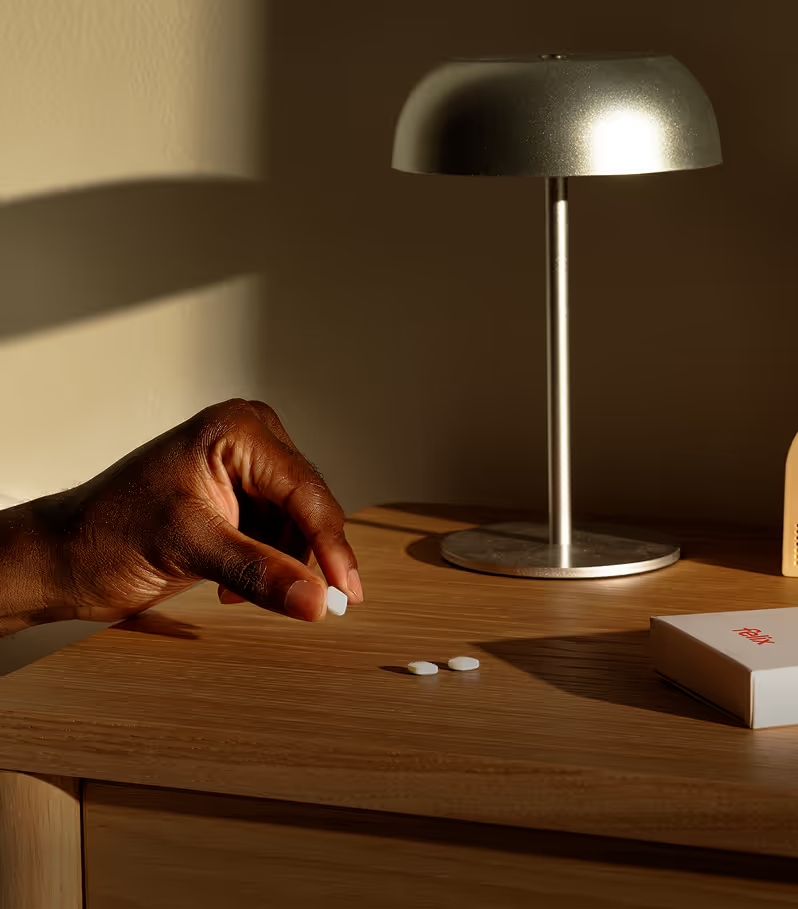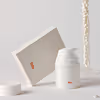Download the Felix App
Earn reward, visit our shop and get exclusive offers on the app
Download nowEarn reward, visit our shop and get exclusive offers on the app
Download nowPut your health first in 2026 with free visits on all categories, and $200 off longevity testing.
Download nowPut your health first in 2026 with free visits on all categories, and $200 off longevity testing.
Download now
AI-generated summaries may be inaccurate and do not constitute medical advice. Third-party AI tools are not under Felix's control, and your use of them is at your own risk.
Odds are, you’re reading this alone. Maybe you’re on your phone, with the screen tilted in such a way that someone else can’t see what you’ve pulled up. You might even delete your search history after getting the answers you seek about your sexual health.
All of this is okay. We understand — how long the average man can stay erect is a sensitive topic that comes with a lot of stigma; especially if you don’t feel like you’re “succeeding” at it.
Thankfully, the team at Felix has put together this page of useful information to answer important questions like “why can’t I get or stay hard?”, as well as discuss some treatments for weak erections and natural ways to maintain an erection.
Let’s start this page with the basics. Namely, what is an erection?
An erection is the term for when blood flows to the penis, causing it to become rigid for the purposes of sexual activities. Lots of things can be a potential trigger for how to get hard (i.e., physical stimulation, pornography, intense sexual imagery, hormones, etc.).
When you start to struggle with figuring out how to maintain an erection, you may be starting to experience the signs or symptoms of erectile dysfunction.
Erectile dysfunction is a very common condition that affects almost half of men at some point throughout their lives, and it’s especially common for those over the age of 40.
This doesn’t mean that you have to be over 40 to experience erectile dysfunction or start to wonder “why can’t I stay hard?”. The first thing to remember is that you are definitely not alone!
Erectile dysfunction can be caused by a number of different factors, both physical and/or mental. This can sometimes make it challenging to determine exactly what’s causing the issue, unless your practitioner can determine a physical reason behind why you can’t maintain an erection.
In other cases, long-term psychotherapy may be required to address erectile dysfunction issues. Sometimes, you may not ever discover the exact reason you’re having difficulty figuring out how to maintain an erection. That’s okay, and it’s normal.
The important thing to remember is that there is help available for you. Interested in learning about whether Felix has a treatment option that can help? Complete a short online assessment to get started today, and one of our practitioners will assess what treatment options may be beneficial for you.
But it’s a little-known secret that erectile dysfunction, whether mild or severe, is common among people with penises. According to a 2020 study by researchers for the International Society for Sexual Medicine, erectile dysfunction can see prevalence rates as high as 48.6%.
If you’re having some difficulty maintaining an erection, at least take comfort in knowing you’re not alone.
Now for the real issue you came here for: how to get and stay hard.
Keep reading to find out what you can do to improve sexual performance. We’ll break down solutions to erectile dysfunction in three categories:
Sex isn’t just physical — it’s psychological, too.
If you’re dealing with severe, chronic erectile dysfunction, see a doctor.
But if you’re looking to add some extra oomph to your erections, start here. Sex is deeply personal, and building intimacy with other people can seem daunting. Fear of intimacy and anxiety about sexual performance can affect your ability to get and maintain an erection.
The good news is that you can take steps to address any psychological and interpersonal roadblocks that may be standing between you and a harder erection. Here’s how to address some common barriers:
No two people have the exact same sexual needs. Some people are kinky, others are satisfied with more vanilla sex (both are okay!). Due to stigma, we’re rarely encouraged to question whether or not the kind of sex we’re having is really the type of sex we want to be having.
According to a Quebec study by researchers Christian Joyal and Julie Carpentier, 45.6% of people have considered “abnormal sexual behaviour” –– meaning (consensual) sex that falls outside the mainstream. On top of this, 33% of people have already engaged with some type of kink, such as BDSM, voyeurism, exhibitionism, etc.
Whether you’re assessing your sexual orientation (asexual people exist, too!) or discovering a new preference, give yourself permission to explore –– as long as it’s consensual.
Talking about sex is … hard. And if you’re not communicating with your sexual partners, misunderstandings can make you less hard.
Start by diagnosing any problems. Are you bored with your sex life? Is your relationship going through a rocky period? Is there resentment that needs to be addressed?
Maintaining an erection is difficult when emotional barriers are coming between you and your sexual partners. To address these issues, write down the points you want to address and talk to your partner. Consider relationship counseling if problems seem insurmountable.
Some sex toys can help you maintain an erection, and other sex toys can help you think about sex differently … which can take some of the pressure off your penis.
If you can get hard but you have some difficulty staying hard, you could try a cock ring. A cock ring is an O-shaped toy that fits around the base of your penis and keeps blood in the shaft for longer. If used correctly with a good amount of lubrication, they’re safe and shouldn’t cause pain.
Other toys such as vibrators and dildos can also help reframe sexual pleasure for you and your partner. Sex toys remove some of the emphasis on penetrative sex with your penis, which may (ironically) help stimulate an erection by alleviating performance anxiety.
We’re not here to talk about the ethics of porn consumption. But we encourage you to think about whether or not your porn consumption is healthy. More specifically, are you replacing intimacy with porn?
According to a 2014 study in JAMA Psychiatry, porn consumption can negatively affect the brain’s reward sensitivity. For some people, porn can become a barrier to intimacy because real sex just doesn’t cut it anymore. The brain wants the quick hit of dopamine, not the complex process of building trust and intimacy with a sexual partner.
If you’re struggling with overconsumption of porn, seek a therapist who specializes in sex addiction.
Depression and anxiety are common mental illnesses that can contribute to erectile dysfunction. According to one small study, almost a quarter of men with ED also have depression, anxiety, or both.
Yet men aren’t socialized to seek help for mental illness. According to Dr. Michael Myers, a psychiatrist and clinical professor in the Department of Psychiatry at the University of British Columbia, “In men, mental illness can be masked. We’ve known for decades that women are more apt to recognize illness of any sort and go to their doctor. This doesn’t mean women are healthier, but that some men just repress it.”
If you’re depressed or anxious, talk to your doctor. They may be able to prescribe medication (which, unfortunately, can exacerbate ED) or refer you to a therapist who can help.
Before you start comparing ED meds, you may want to take stock of lifestyle factors that could be making it hard to stay hard. Here are five of the most common contributors to erectile dysfunction and what you can do about them:
There’s no one food that will give you a harder erection, but a balanced diet teeming with healthy fruits, veggies, protein, and healthy fats can contribute to better overall sexual health.
But erectile dysfunction has been linked to heart disease caused by high blood pressure; when plaque builds up in your arteries, it reduces blood flow to your heart and your penis.
ED is also linked to diabetes. Over time, high blood sugar can damage blood vessels and nerves that feed an erection. One U.S. study by researchers at the Johns Hopkins Bloomberg School of Public Health found that almost 50% of men with ED also had diabetes.
So what can you do about it? Try to avoid eating too much sugar and processed foods. Keep your sodium in check. Greens and fish rich in omega-3 fatty acids, such as salmon, can also help lower your blood pressure over time if you remain consistent.
Similar to your diet, smoking can affect your erections over time because nicotine can cause your blood vessels to narrow. One study published in Prostate International also showed a link between erectile dysfunction and atherosclerosis, which is a buildup of plaque in your arteries caused by smoking.
Plaque and narrow blood vessels do not create a great environment for strong erections. Quite the opposite.
If you want to quit smoking, you’ll need to combine prescription medication with behavioural therapy. One study from the UK found that over-the-counter smoking cessation aids actually reduced success rates, so you’ll want to see your doctor for help.
Mild to moderate alcohol consumption can affect your erection when you’re drunk, but the alarm bells really start to go off when you’re consuming more than three standard units of alcohol (12g of ethanol) on a daily basis.
A 2007 study in the Indian Journal of Psychiatry found that 72% of men who suffer from alcohol dependence also experienced sexual dysfunction, most commonly ED, premature ejaculation, and low sexual desire.
If you’re struggling with alcohol addiction, consider finding an Alcoholics Anonymous group near you. According to researchers from Stanford, AA can be more effective than therapy because of its social component.
There are some other natural ways to maintain erections, which don’t involve taking prescription medications. These treatments for weak erections may be just the solution that you need for how to get and stay hard. Some examples you can try include:
Stress is a leading cause of erectile dysfunction. When your body is stressed, stress hormones like cortisol rise and the sympathetic nervous system is activated. Even at low levels, stress hormones can send the body into varying degrees of fight or flight, which then deprioritizes sexual performance.
Stress reduction isn’t easy when external factors like job uncertainty, relationship strife, family troubles, or other problems are nipping at your heels. But here’s what can help:
Sleep deprivation is associated with lower testosterone. According to an American study by the University of Chicago Medical Center, skipping sleep reduces testosterone levels in young men as if they had aged by 10–15 years.
After just one week of getting five hours of sleep per night, their testosterone levels decreased by 10%–15%. If you want to get more sleep, try:
If you need some prescription help with staying hard, there are several drugs on the market you can try. Some last longer than others and work in different ways, so it's important to consult with your healthcare practitioner to determine what options are best for you based on your needs.
There are lots of options when it comes to dealing with erectile dysfunction, it’s up to you to decide where you start and which treatment makes the most sense for you. If you want to explore your options, start an online visit with Felix today.
With Felix in your corner, you can take back control of your sex life, so that you can get back to living life on your terms - the way it should be.
Medically reviewed by
References



